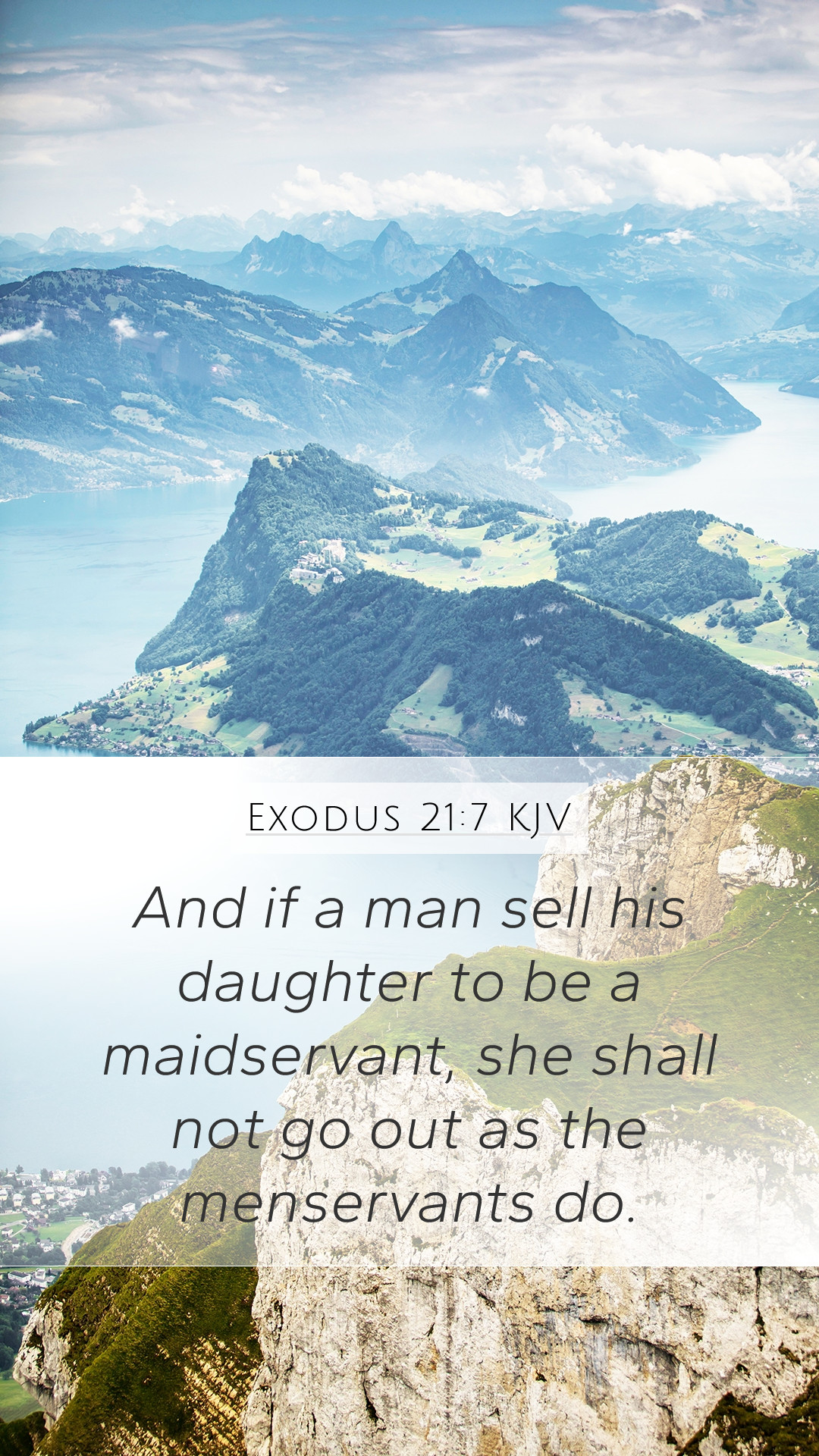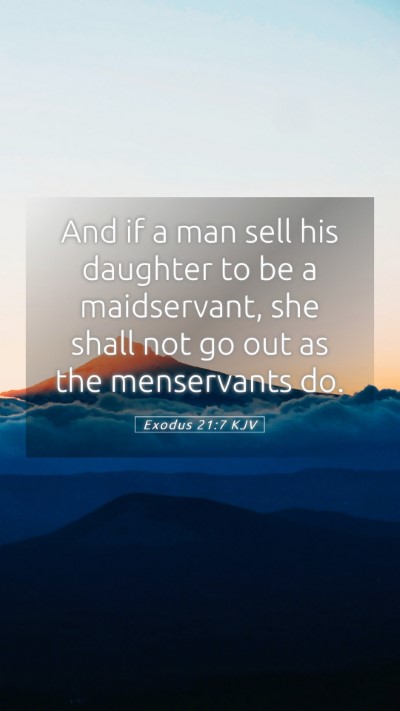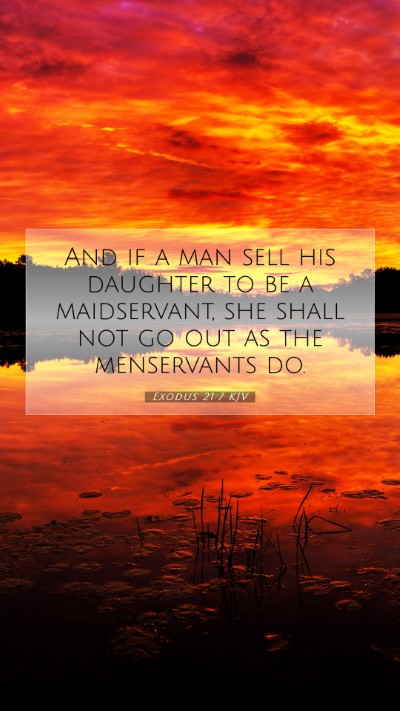Bible Verse Commentary: Exodus 21:7
The verse Exodus 21:7 states: "If a man sells his daughter to be a maidservant, she shall not go out as the menservants do." This passage provides insight into the social and economic practices of ancient Israel, highlighting the cultural context of servitude and women's roles during that period.
Understanding Scripture: Historical Context
In ancient Israel, various laws governed personal relationships and economic transactions. The sale of a daughter as a maidservant indicates a family’s desperation or necessity, as well as the limited options available for women. This practice, while troubling by modern standards, reflects the realities of life in a patriarchal society. The intent behind this law is to protect the interests of women in servitude, ensuring they were not treated as mere property.
Bible Verse Interpretations
-
Matthew Henry's Commentary:
Henry emphasizes the necessity of providing for a daughter’s welfare in servitude. He notes that the law serves to safeguard her rights, contrasting the treatment of maidservants and menservants, reflecting a protective stance towards women compared to the more transient male servitude.
-
Albert Barnes' Notes:
Barnes outlines that the provision made for female servants in this verse signals God’s concern for women. He highlights how the laws surrounding such practices were intended to ensure dignity and respect for women, preventing them from being mistreated or discarded.
-
Adam Clarke's Commentary:
Clarke stresses the importance of this law as a means of highlighting the rights of maidservants. He discusses the historical and cultural implications of this practice, asserting that while such arrangements were accepted, they also contained regulations ensuring the maidservants were treated fairly and humanely.
Biblical Exegesis: Legal and Moral Implications
This verse reflects broader themes of justice and compassion within the Mosaic law. The distinction made between menservants and maidservants suggests an acknowledgment of different social roles and the need for distinct protections. The underlying principle involves not just economic transaction but relational dynamics that ensured women's rights and wellbeing.
Application of Bible Verses to Daily Life
Modern readers can draw lessons from Exodus 21:7 regarding the importance of protecting the vulnerable within our communities. It presents a call to action to ensure fairness and respect in all relationships, honoring human dignity above economic considerations. This verse also invites reflection on how we engage with others, particularly in power dynamics where one party may have more control than another.
Related Bible Cross References
- Deuteronomy 15:12 - Discusses the release of servants in the sabbatical year.
- Exodus 21:8 - Continues the theme of maidservants and their rights.
- Leviticus 25:39 - Addresses the treating of fellow Israelites as hired workers rather than as slaves.
Bible Study Insights and Conclusion
In conclusion, Exodus 21:7 serves as a significant text for understanding social justice, women's rights, and the moral obligations between individuals. It is important for those engaged in Bible study groups and online Bible study to analyze this passage meticulously, using available Bible study resources and tools. Digging deeper into Scripture not only enriches our understanding but also enhances our ability to apply its teachings to our lives.


